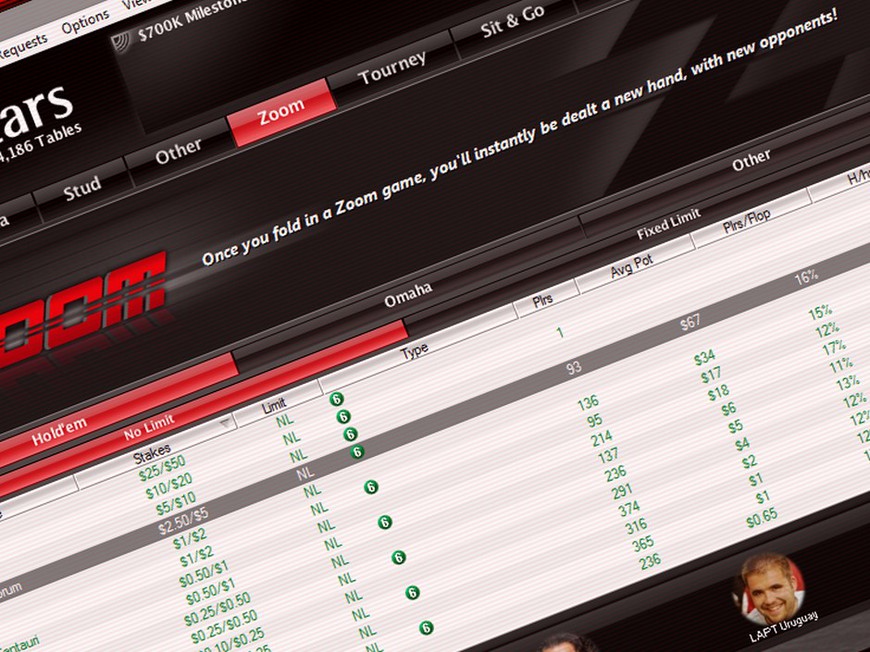

On May 23, PokerStars Portugal officially joined the shared European player pool that already includes players from France and Spain. The inclusion of Portuguese players means that PokerStars becomes the first online operator to offer shared liquidity among the three previously ring-fenced markets.
The European network which currently ranks third in the world in terms of ring game traffic saw a boost of 27% in the first week with the addition of the Portuguese pool. It is expected that the traffic will grow further once the TRIO series gets underway.
Like it did to commemorate the opening of shared liquidity between France and Spain, PokerStars is celebrating the new three-way shared liquidity with a tournament series aptly named TRIO. The series starts on June 3 and guarantees €5 million across 78 tournaments. It features two main events, one No Limit Hold’em and one Pot Limit Omaha each with a buy-in of €250.
Sign up for a PokerStars account to play the TRIO series!
Interestingly, players outside of the three countries can also sign up on the Spanish PokerStars site (PokerStars.ES) as long as their countries do not fall under local licensing.
“Bringing Spanish and French players together in the same liquidity has been a major PokerStars milestone. After several years of playing in closed markets, we have been excited to bring two great poker playing nations back together.” wrote Severin Rasset, PokerStars Director of Poker Innovation and Operations on the PokerStars blog. “We anticipated a renewed interest in the game as soon as players could reap the benefits of that larger shared player pool, and this quickly became reality.” Rasset further added.
However, not all games have been pooled together. Because each of these three countries has different gambling rules and regulations, PokerStars had to take many things into consideration when merging the pool. These include making adjustments to its game offerings and pricing.
Nearly all games that were offered in the segregated markets now exist on PokerStars’ European network with the notable exception of Spin & Go tournaments. The lottery-style sit and gos that have proved to be a big hit around the world are not available to players in Portugal, a distinction that has in place since the room opens and is presumed to be a result of regulatory restrictions.
Rake Implications
France has the highest effective tax rate in the world when it comes to online poker and is the only country which charges gaming duty on bets rather than on the revenues. As a result, every single ring game pot (flop or no flop) is taxed 2%. This means that because operators must pay tax on pots that they take no rake (hands that do not reach a flop), they charge a higher rake overall to compensate.
Whereas as per Portugal regulations, operators cannot charge more than 5% rake on ring games. As a result, the ring games under the PokerStars.PT license remain segregated from the company’s European network where the rake charged on ring games is much higher (5.75% – 6%)
However, PokerStars was ready to make a compromise in regards to its fast-fold tables. Before bringing Portugal to the pool, PokerStars was charging 5.50% on micro-stakes Zoom games and 5.25% on low to mid-stakes games. Now the rake at Zoom games is down to 5% across all stakes.
“This is a clear decrease in pricing that we are happy to make because we want Portuguese players to be able to enjoy the experience alongside Spanish and French players.” Saverin Rasset further wrote on his blog.
Earlier this year, the company made similar adjustments to its pricing when combining the French and Spanish pool. It had to create a single rake table for the network resulting in a rake decrease in France from 6.5% to 5.75%, an increase in Spain from 5.25% to 5.75% and a decrease in both for Zoom ring games from 5.75%-5.50% to 5.50%-5.25%.
End of Regular Ring Games?
The difference in the rake between ring games and Zoom games is significant. The French and Spanish players now have two choices – pay 5% rake at Zoom games and play with much bigger player pool or pay 6%-5.75% at regular ring games in a smaller player pool. Naturally, Spanish and French players would be more inclined towards playing in the Zoom pool.
At the time of writing, Zoom traffic outclasses the Spanish and French combined regular ring game traffic by 1.5 times which is unusual.
For Portuguese players, there is a huge disparity between the Zoom and regular ring game traffic. The Zoom pool has four times more players than its regular ring pool. This could even spell the end of regular ring games on the network as the Zoom games are significantly more attractive.
In the past, the company did say that they are developing the ability to charge different rake for different players within shared liquidity. This could very soon be implemented on the European network given the different regulations and tax implications in the three countries.

